Last Updated on July 28, 2021

The Arrow
interviews
Jennifer Morrison and Joseph Lawrence
Below,
you will find a transcript of an ijunket interview that I took part in last week. The two cast members present for the interviews were Joseph
Lawrence (JL) and Jennifer Morrison (JM).
The movie is the sequel to “Urban Legend” entitled “Urban
Legends: Final Cut”.
Q:
Joseph, how did your Hollywood experience influence your portrayal of a film brat in this film?
JL : Well, my Hollywood experience was sort of an unorthodox one – – you know, I came from a really great family and that gave me a lot support, was around me at all times. And, you know, I never fell into the traps and the pitfalls that unfortunately a lot of people fall into. So – – but it was kind of fun to play the antithesis of that in the Gram character. I think it was – – ’cause this guy kind of got caught up in it and was really affected by it. And it altered his personality growing up in it, so it was fun to jump into that. But our experiences as individuals were different.
Q : So the flip side?
JL : Yes.
Q : Jennifer, how did being an up and coming actress influence your portrayal of an up and coming young filmmaker?
JM : It was really important in kind of figuring out how everything worked for her in terms of kind of paralleling her journey through struggling and trying to make sure everything was put together right.
And yeah, so in that sense, it was very similar, you know. I was working really hard to make sure that I did everything I could to be as successful as I could be and know that I was taking the right classes in training myself as an actor. And she was doing the same thing as a filmmaker and going to school for it. So the same time I was going through college for acting, I was tending to be going through college for film, so it definitely was a good parallel.
Q : Jennifer, you stared in last year’s Stir of Echoes. Was that experience different or similar, uh, in any respect to your experience to this film?
JM : Oh, very different. In this film, I was like the person having to deal with everything. In that film, I was thing scaring everyone. [LAUGHTER] So in that film, it was a lot of very tedious technical filming, and lots of time in hair and makeup, and dealing with trying to create a very abstract character. And in this film, I was dealing with a really solid, person – – human being dealing with all of these things. It was actually alive, which was different than being dead. And so in that sense, you know, it was kind of a total flip side and sort of how you’re talking about.
Q : Joseph, do you use the Internet at all, and if so, how?
JL : You know, not a big Internet guy, really. I mean, I think it’s awesome, but I kind of, you know, missed that. I mean, the only thing that we used the computer for when I was in school was like word processing and stuff. So [LAUGHTER] I’m getting into it though through music, because it’s forcing me to become computer, you know, literate. But I’m not a real big fan of it. But my brother is like an insane Internet junkie. He loves it, and he’s all over it all the time.
JM : I think we missed it by like two years.
JM : – – sister’s his age – –
JM : – – spend all their time – –
JL : – – I feel very – – this thing is still just – – I don’t know. It’s like I missed the boat on that – – you know, I think if I had been three or four years younger, I would of – – you know, ’cause then it would of been – – I mean, we didn’t have computer labs. And we – –
JL : – – class and – – I mean, it was just there. Like there was one old computer in my school room that, you know, we had to like take turns and type [LAUGHTER] our papers out on. And I had those really noisy printers like the,
ehhhhh. [LAUGHTER] I mean, you know, so it – – I mean, I totally missed the boat on that. But, no, I haven’t really used it.
JM : My twelve-year-old brother taught me how to instant message the other day.
JL : Mine’s making pictures of me on the Internet and putting Afros on me. And it’s just [LAUGHTER] incredible. I mean, it’s like he’s going with like scanners and all this stuff. And it’s like a language that is very foreign to me, so, yeah.
Q : Jennifer, how much of a challenge was it working on a movie within a movie? Was it confusing at times?
JM : Yeah, it was kind of crazy. It was funny because there’d be these moments where I’d feel like I was acting like John, you know, and telling everyone how this shot’s set up. And everyone’s already doing that. The shot’s set up, and everything’s going on. And there’s already the clapper going and all this stuff. And then, I’m like setting up my shot inside the shot, you know. And sometimes I would throw in little things that were little
Johnisms, just to humor him. [LAUGHTER]
Q : Joseph, you’ve had a lot more experience than most of your fellow cast members here. How did it feel being the veteran? Did you give any advice to your fellow actors?
JL : You know, I think they really knew what they were doing. You know, yeah, I’ve been doing this a lot longer. But, you know, no, I mean, not really. I didn’t go out as much as, you know, as some of them did. But we kind of stayed at the hotel and hung out and stuff. But, you know, I think that – – no, the only thing that – – you know, when I work, I love to work. I love to go up there and work. And then by the end of the day, I’m kind of tired, so I just go home and crash. But that was the only thing that really, you know, I kind of did that was different. But everything else everyone kind of knew what they were doing. And I think it shows, you know.
Q : So Jennifer, was it like starring in your first Hollywood feature?
JM : It was really exciting and really scary at the same time. I remember realizing – – I’m one of those people who just dives into everything. I’m like, yes, OK, I can do this, and this is my job. And I just kind of take everything as it comes. And it didn’t really hit me until I got to the hotel in Toronto and we went to the table to read and everything. And I was like, oh, my God, like I have to be the reason people want to see the next scene. ‘Cause I’m in like every scene. [LAUGHTER] And I was like, realizing that pressure, you know. And so then – – and I mean, I was really serious about my character in the first place. But there’s an added pressure to really making sure that, you know, every specific detail of her life and everything was understood in my head, so that when I was presenting something in a scene, it was really right on. There’s no leeway for not knowing something at that point. So it was definitely both the pressure and really exciting and fun at that same time.
Q : This would be for both of you. Culturally, people seem to enjoy scary movies in the same way that we enjoy urban legends. Why do you think it is that we love to be scared? And that is something you thought – – is that something you thought about while you were working on the film?
JM : I think it’s interesting, because I always shied away from scary movies when I was younger until I started working on a lot of – – you know, doing Stir of Echoes and stuff. I started having different interests in it. There’s that adrenaline thrill. I think it’s almost like riding a roller coaster – – you know, when you’re watching a movie and you get that same kind of excited thrill of the anticipation of something. I mean, even watching this movie knowing what’s coming next – –
JM : – – times. I was sitting there with my agent watching her. Oh, my God, what’s happening next? It’s like, Jennie, you know the script. But there’s something that we love about that like little feeling you get inside when you get excited, or there’s that total terror tension going on. So I think that it’s kind of a rush.
JL : Yeah, I just think so many times, people in real life are – – we are scared of real things. And I think that to go to a film and – – you know it’s not real. And I think that’s the whole point of – –
JL : – – you know, we could be – – we could go in there and enjoy ourselves and enjoy being scared, whereas so many times in life when we’re scared, we can’t enjoy it. Because it’s really scary, you know. So I think that’s the fun of it for me, is that you can go in there and scream and get nervous. And, you know – – and so at the end of it, you walk out. And for that hour and thirty-five minutes, life is kind of stopped. And then, you know, it’ll kind of start up again, so, yeah.
Q : Joseph, what attracted you to this film?
JL : Well, for me, it was a – – you know, coming back off like three years of not working, and being away, and kind of stepping out of the limelight there. It was an opportunity to kind of come back and just play a part that people wouldn’t necessarily associate with me. Because they all think that [LAUGHTER] I walk with ripped jeans and, you know, like touting woe and whatever. So, [LAUGHTER] yeah, it was – – you know, this guy is kind of a dark character with a lot of problems. And I think it was a good first role for people to see me in. And it was good for me as an actor to kind of just be able to play something a little bit different, ’cause that’s kind of what I’m looking to do right now is just play different roles in different things and experience situations with different characters. You know, that’s what I’m trying to flex my wings a little bit here.
Q : So Jennifer, any directing aspirations now that you’ve played a film student?
JM : Oh, yeah, I’ve always actually had directing aspirations.
JL : It’s a good leeway. When you’re an actor, it just lends itself to directing, I think.
JM : Yeah, when you’re around on set, and especially for me with this film, having been on set as much as I was and really getting along with John
Ottman so well. And his mind working as an editor really helped me understand how things piece together in a film. And it really helped me develop my character having – – getting along with him so well. Because I was able to kind of pick up things and understand the way he looked at things, and understood things, and pieced them all together. And so I’ve definitely got a really strong grasp on that and would like to pursue that eventually, yeah, definitely.
Q : Why do you think women are so often the protagonists for slasher and horror movies?
JM : Wow, there’s lot of different potential answers for that. [LAUGHTER]
JL : For like fifty years of guys being them. [LAUGHTER] I mean, I think it’s time for girls. [LAUGHTER] It’s always the guys.
JM : Well, this was a totally different kind of woman protagonist, though. I mean, she’s intelligent, and she’s with it. And she’s creating something. And I – – that was what really drew me to the character in the first place – – you know, a lot of the women who are in these kind of films are like running around in wet T-shirts and screaming, you know. And – –
JL : We tried to get a wet T-shirt – – [LAUGHTER]
JM : It wasn’t in my contract, you know. [LAUGHTER]
JM : Gosh, you know, I don’t know. Maybe I really – – that’s a really tough question to ask. I think there’s – – it pretty much evens out if you look at all of them, maybe because we tend to think that the killer’s always a guy or something. I don’t know.
JL : Early on it was a T and A thing. And now, it’s a woman’s strength thing. Like we can be heroes too.
JM : Yeah, it – –
JM : – – that may be part of it. I think was a huge drawn for girls, especially – –
JM : I think definitely with this particular film – – I was trying to think of other films. But I think with this particular film, it was definitely, you know, a woman hero story. And that’s really an interesting way to start taking the genre, because, you know, it makes me proud to be a woman.
Q : Were there any real life spooky happenings on the live set or did everything go to script – –
JM : I had a couple pretty crazy little incidences. We were filming in a forest for a while. And I was walking back from lunch, and there was no one walking back with me, which was really odd. ‘Cause with the AD’s are usually like suctions to us, you know. And I don’t know how I managed to sneak away. I didn’t mean to. But I walking back alone from this forest, and I was absolutely scared out of my mind. Because it was like everything that can possibly happen in a horror movie was going through my head as I walking through. And then the only other thing that was funny was, I was in bed at night, one night. And I was living by myself, filming a horror film, so I was always kind of like subconsciously on edge about things. And it was like one in the morning, and it sounded like someone was opening my door. And I get freaked out in hotels, because so many people have keys.
JL : It wasn’t locked. I didn’t know. I was trying to – – [LAUGHTER]
JM : But, you know, all the maintenance people, all the cleaning people, they all have keys, so you kind of get freaked out. So I fly up in my bed. I’m like, don’t come in, and I’m screaming. And then I like wait, and I don’t here anything. And it’s like, God, what happened? So I like get out of my bed, and I’m like really scared to walk over there. And someone had slipped my call sheet like through the mail slot instead of under the door, so it had made extra noise. And I was just imagining the poor hotel guy who put the thing under the door. And here’s this girl screaming at the top of her lungs, like don’t come in.
JM : So I had a couple – – I think it was totally affecting me a little bit more subconsciously than I realized.
[LAUGHTER]
Q : There’s a lot of layers of illusion and reality in this film. Did that add to the attraction of the material?
JL : I think so.
JL : – – that was kind of the twist that separated this movie from a lot of the other ones. I think is the film within the film thing. And, you know, reading it, you didn’t know whether you were – – I mean, you know, the whole opening of the movie is just so neat. And I think that’s what made it kind of interesting and appealing to me, is that film within the film thing.
JM : That’s partly – – I know you were talking to John earlier about, [NOISE] you know, why aren’t the police there and stuff like that. I think that’s part of what plays into in this scripts. There is this illusion with the characters – – you know, the world that we’re living in. There’s all these illusions of why people could be some other place, and why they might not be dead, and why this, and why that. So it’s this constant – – like me as Amy, not me as me, going, well, maybe I’m just freaking out. Maybe this totally could be OK, you know. So there’s all those layers on top of it that were really interesting in terms of like finding our characters and what was going on with that.
Q : Joseph, when people hear the name, Joey Lawrence, they always envision the smiling, happy guy from next door. Do you think this role will show the public your versatility?
JL : I think it’s a start, you know? I think that, yeah, it’s the start of something new for me. And I’m hoping that – – yeah, ’cause that’s what I want to do. I just want to do a bunch of different things and let people know that even though I did my job really well on TV that, you know, that there is other facets, you know, to my personality and my – – just my person as an actor that I can’t wait to have the opportunity to show people. So – – but this is certainly a start, yes.
Q : Jennifer, do you think the audience can really identify with your character in the movie?
JM : I think so. She’s really real. Like she’s really down to earth and just kind of, you know, this kid who has a dream of being a director, and is fighting to make that work, and make that happen, and has all these obstacles, and, you know, all of the wild things that happen in the midst of all of it. But in terms of who she is, and how she relates people, and gets along with people, and lives from day to day, she’s just really a down to earth kid.
Q : Sort of both of you, what were your experiences like in leading roles for big screen?
JM : I – – it was – – you know, that’s very similar to what I was talking about earlier, you know. It was quite a pressure, but at the same time, it was exciting. It was neat to get to work with the crew and the cast that I got to work with, all the – – you know, all the producers, and the director, and everybody in the crew. It was quite a learning experience in terms of putting together a character with no sense of continuity. I don’t know how many people realize that, who aren’t involved in the business. But, you know, you may film the last scene of the movie the first day of filming, and then everything’s out of place. And, [NOISE] you know, I remember I’m filming this scene where I’m like running in terror from something, and I hadn’t filmed any of the things that were supposed to put me in terror yet. So it was like you have to have this incredible imagination to create in your mind what those things on paper are going to look like, so that you can put yourself there, and be that freaked out, and be that upset, and scream for six hours in one scene, you know, some night, or cry about something that you haven’t even seen happen yet. So it’s really interesting to try to piece all that together and really create a real person without a sense of, you know, going straight through it like you would in a play.
JL : And the old cliché, what’s my motivation?
JM : But you still have to – – you have to create it in your head to make it work out.
JL : Yeah, I just think it’s – – I mean, it was great just working on a film set. I think that, you know, the film like experience for me is one that is new and exciting – – you know, I spent, you know, fifteen – – sixteen years on TV, which is a great format. But I think this is kind of like the beginning of something totally new for me. And I feel like I’m kind of starting all over again. And that’s kind of exciting to me as an – –
JL : It was – – yeah [LAUGHTER] – – but, you know, I think it was a lot of fun. And I can’t wait to have the opportunity to, you know, save the world and a bunch of other things. [LAUGHTER] I think that’d be, you know, a lot of fun. I can’t – –
Q : So a good leading question. And we’ll close it out here as we’re running out of time. What’s on the plate for both of you next?
JM : Right now, actually, I’m working on an independent film in Chicago, called Design. Davidson Cole is directing it, and Daniel J.
Traventy is playing my father. And Edward Cunningham’s playing a very important character in my scenes as well. It’s been a really great experience. It’s interesting to work on an independent film compared with a big studio film. But I’ve absolutely been loving my experience in that. So I’m in the middle of working on that right now.
JL : Yeah, I just wrapped an indie down in Florida, which is kind of a dark movie. It’s called – – you want to know what – – Abe’s Secret, which is – – I don’t know. I – – you never know how they’re gonna turn out, but it was a lot of fun to do. And – –
JM : No matter how they turn out, there’s always a great experience.
JL : Yeah, I mean, that’s – – you know what I mean? I think that for me right now, it’s more about the experience as an actor. And, you know – – and then hopefully you’ll be able to get to that point one day where you have enough success where you really have to start worrying about how the whole project comes – you know, because I mean hopefully everyone – – you know, you – – I mean, like the guys – – as actors, it’s great to do great work. And I think on the other side of it is you want to all – – you know, you want to try to be in those movies that everyone can’t wait to see, you know. So and I hope I get there. That’s – – you know, but for right now, I think it was a great experience. And I’m looking forward to seeing how it’ll turn out.
Q : Thanks a lot for joining us.


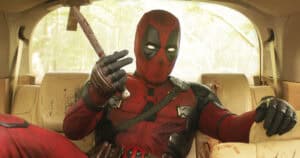
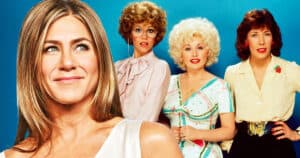
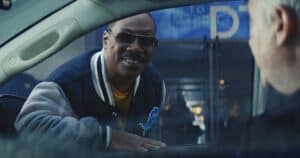
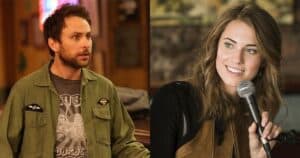
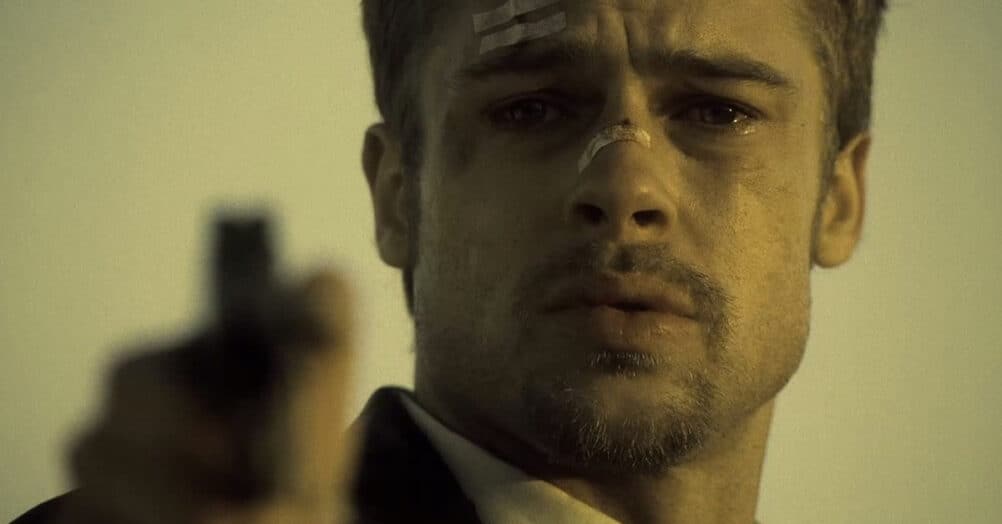
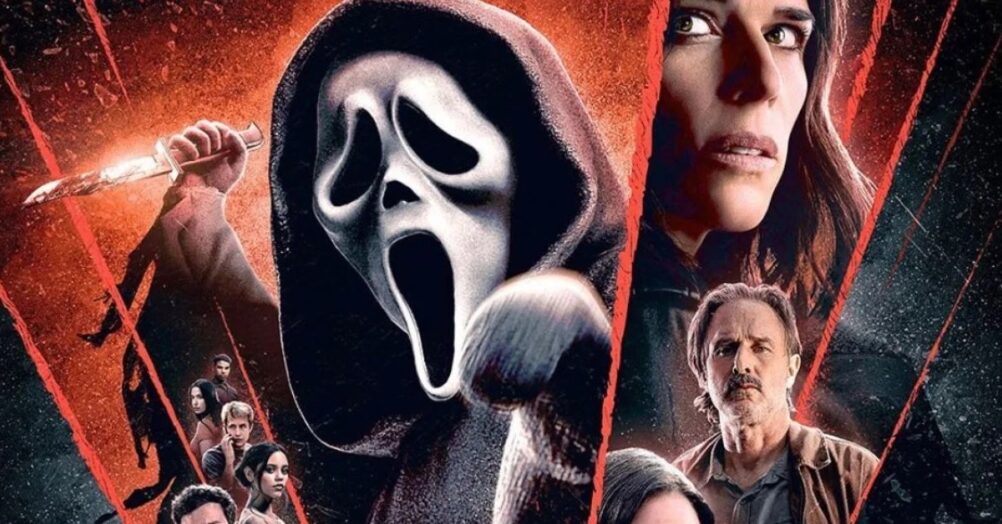
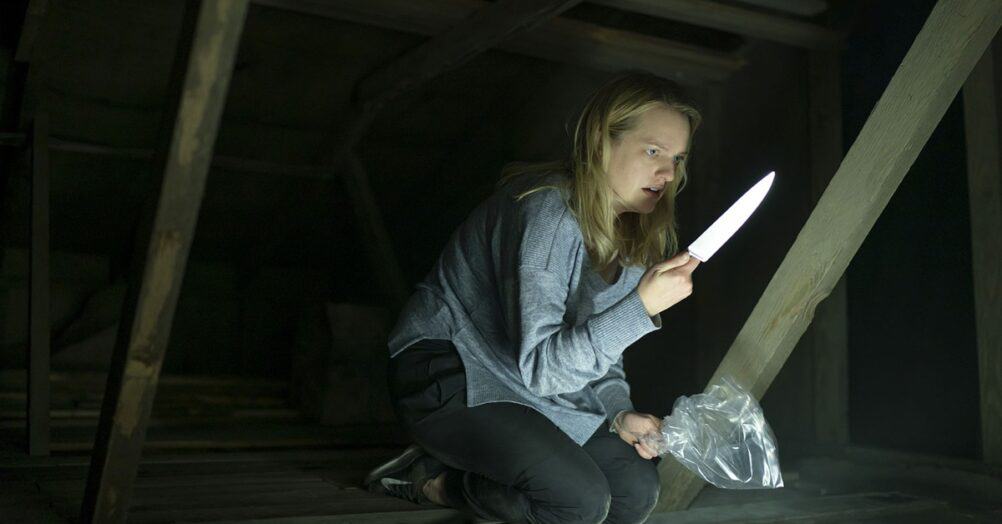

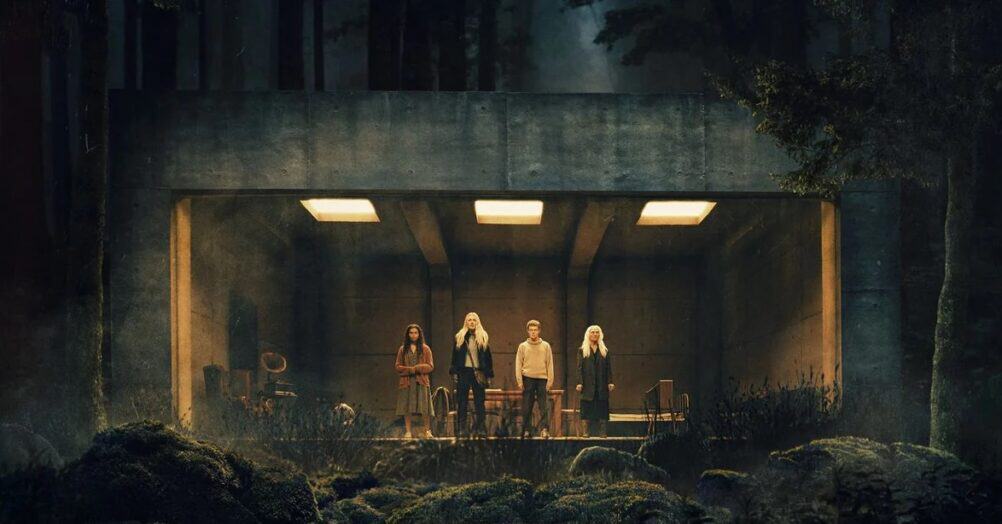
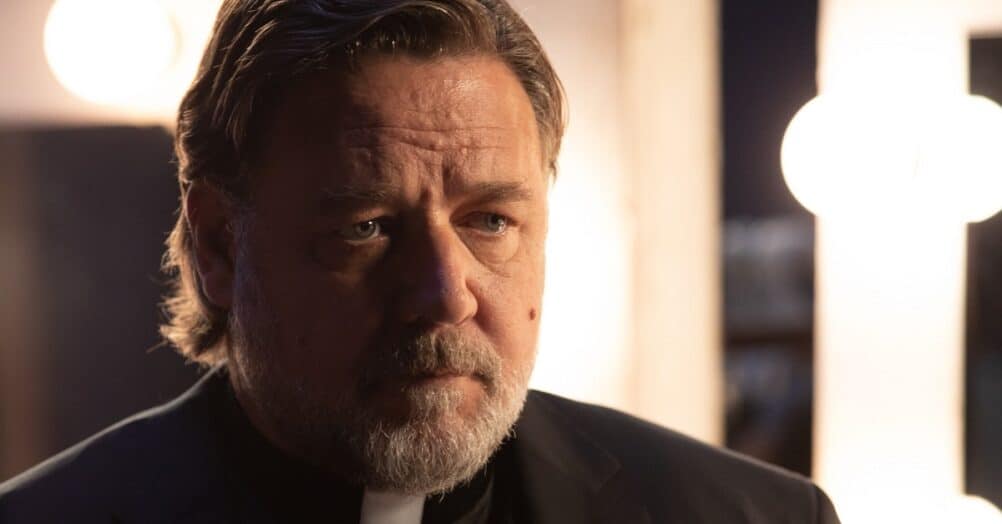

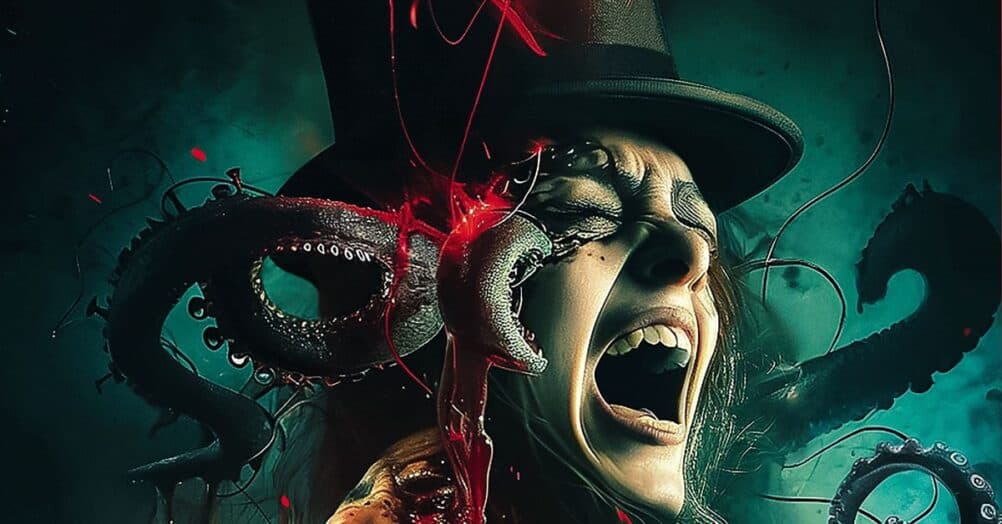
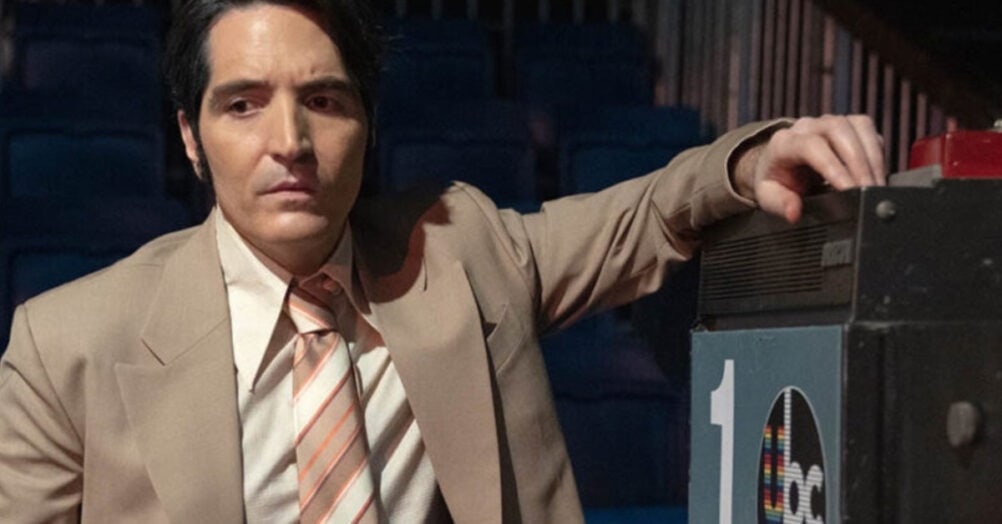
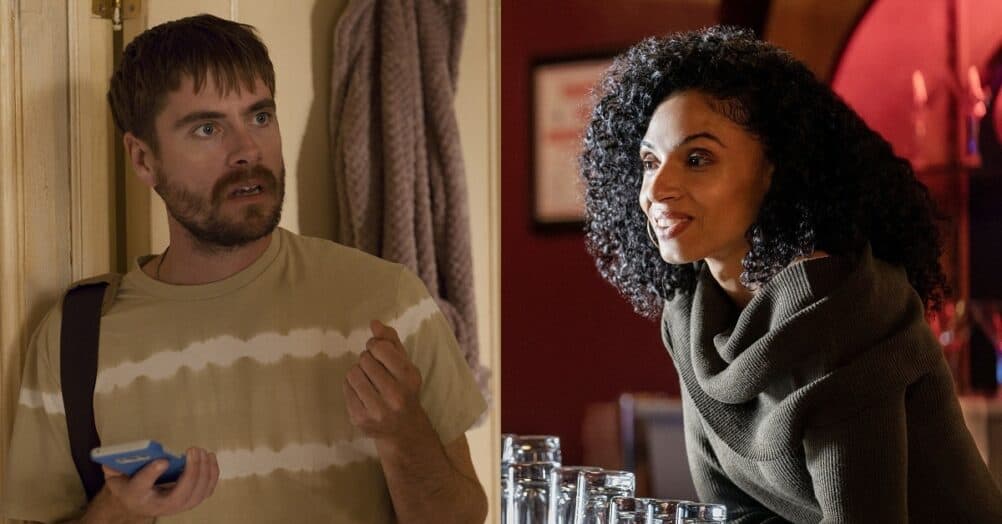
Follow the JOBLO MOVIE NETWORK
Follow us on YOUTUBE
Follow ARROW IN THE HEAD
Follow AITH on YOUTUBE